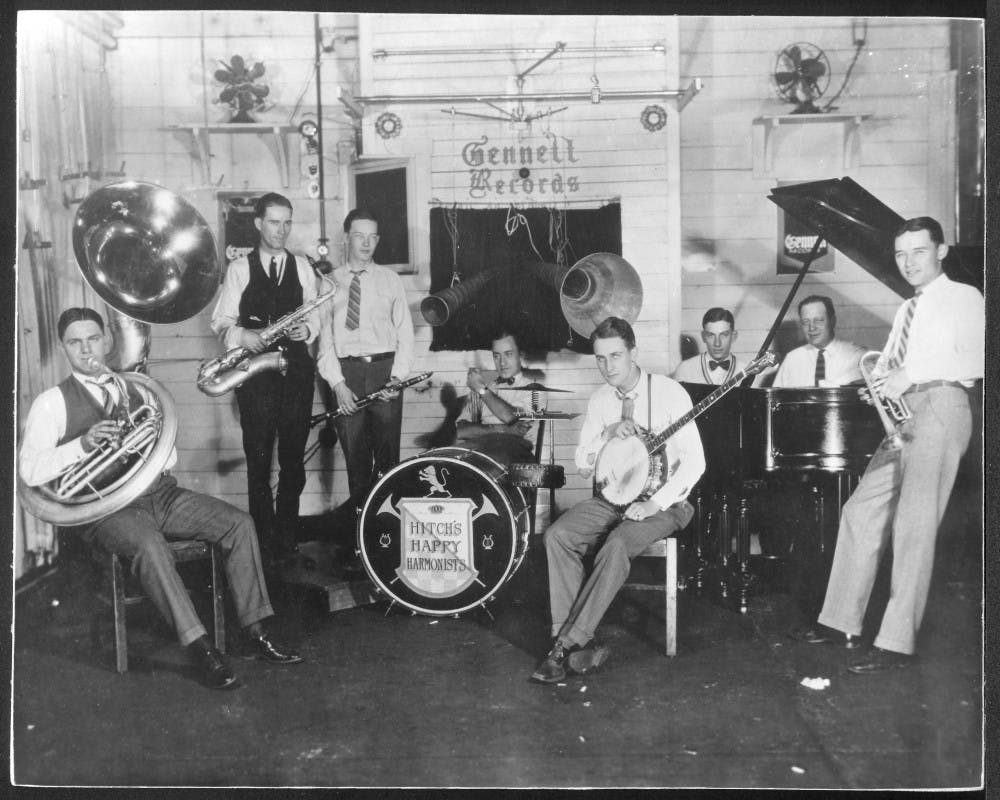Believe it or not, in the early 1920s, the hottest musicians of the jazz age were recording their music in Indiana.
Musicians such as Louis Armstrong, Hoagy Carmichael, Bix Beiderbecke and Duke Ellington, among other popular artists of the era, flocked to the Gennett Recording Studio in Richmond, Indiana to record the music that would eventually make its way across the country and embed itself in the culture of the 20th century.
"The Music Makers of Gennett Records," a documentary produced by WTIU Senior Producer and Editor Todd Gould, premiered Nov. 25 on WTIU. This documentary explores the stories of people who recorded at Gennett, the culture around the studio itself and how the combination of the two created a ripple effect throughout the U.S.
Stories about Indiana that eventually led to long-lasting effects around the country and the world are the kinds of stories Gould said he wants to capture, and Gennett is an excellent example of that.
“I’ve taken this kind of very Indiana thing and then turned it into something that has made it into a big difference-maker for what we know as American popular music,” Gould said. “It’s a good local story, or a good regional story, that a lot of local people around here can take pride in.”
Gould said he hopes his in-depth stories covering the artists that recorded for Gennett help humanize the documentary and make it relatable to the audience.
One of these stories is that of jazz music star Bix Beiderbecke.
A struggling musician, Beiderbecke had developed alcoholism. He was a great performer, and everyone adored him. But he never got recognition from the people he desired it from the — his parents. He began to drink to the point that he began to miss cues in his music. One of the players in his band actually wrote on his music sheet to “Wake up Bix” in order to make sure Beiderbecke was ready to play.
Gould actually found this sheet music and included a copy in his documentary.
Another story featured in the documentary is about the culture around Gennett’s studio. While the other two recording studios in the nation, Columbia and Victor, were focused on recording classical music, Gennett simply wanted to produce as many records as possible.
“Gennett didn’t care," Gould said. "They took anybody and everybody. Anybody who wanted to walk in and make a record, could walk in and make a record. It was the only studio that would allow African Americans to come in and record.”
Gould explained that letting anyone record also led to the blurred race relations within the studio walls at Gennett.
For Gould, this documentary all comes back to learning from history.
He has worked on this documentary for more than two years, interviewed multiple people and put in hours of editing to create a final product in the hopes people will not only watch, but take lessons away from the story as well.
"There was a group of people that kind of came together around a great cultural idea that was this type of music," Gould said. "And that music transcends class, ethnicity, it didn’t matter."
Although the premiere of the documentary has already passed, it is not too late to watch "The Music Makes of Gennett Records. Subsequent airings on WTIU include at 9:30 p.m. Dec. 1, 4 p.m. Dec. 2 and 1 p.m. Dec. 4. T"he documentary can also be streamed for free on the WTIU website and the WTIU Facebook page. This streaming service is available for one month, beginning Nov. 27.






